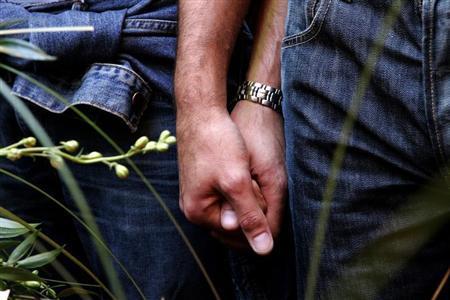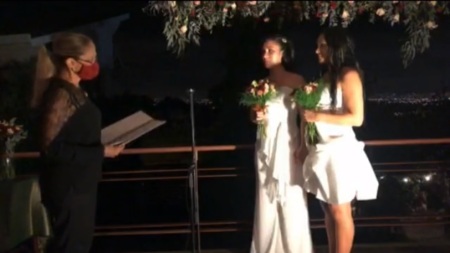Costa Rica becomes first Central American country to legalize same-sex marriage

Costa Rica became the first Central American country to legalize same-sex marriage Tuesday as a 2018 court decision striking down the country’s ban on gay marriage went into effect.
“Costa Rica officially recognizes equal marriage,” President Carlos Alvarado, who won the 2018 election on a pro-gay marriage platform, wrote in a tweet translated from Spanish.
“Today we celebrate freedom, equality and democratic institutions. May empathy and love be the compass that allows us to get ahead and build a country where all people fit,” Alvarado added.
The law changed after a Supreme Court ruling in August 2018 gave Costa Rica’s Legislative Assembly 18 months to alter the law on marriage that the court deemed to be unconstitutional or else the ban on same-sex marriages would automatically be nullified.
Earlier this month, a group of more than 20 conservative lawmakers introduced a motion to delay the court’s ruling an additional 18 months. However, their bid was rejected in a 33 to 20 vote, according to Gay Star News.
At midnight on Tuesday, the ban was officially lifted.
Shortly after same-sex marriage became legal, 24-year-old Daritza Araya Arguedas, a judicial technician, and 29-year-old Alexandra Quirós Castillo, a university student, became the first same-sex couple to get married in the country early Tuesday morning.

The ceremony was held in San Isidro de Heredia, a town located just north of the capital, San Jose. According to NBC News, it was watched by over 10,000 people on Facebook.
BBC reports that the ceremony was also broadcast on national television as the culmination of a three-hour show celebrating same-sex marriage.
Other same-sex couples also got married later in the day.
International LGBT advocacy groups celebrated the news that same-sex marriage is now legal in a country that has strong social conservative traditions tied to the Catholic Church.
Alvarado’s victory in the 2018 presidential election was against evangelical conservative opposition candidate Fabricio Alvarado Munoz, who has been critical of same-sex marriage and led a resurgent evangelical political movement in the country.
The opposition candidate vowed to defy a 2017 ruling by the Inter-American Court of Human Rights that declared that rights given to heterosexual couples should be extended to same-sex couples.
However, Alvarado of the center-left ruling party was victorious by over a 20-point margin.
Months after Alvarado’s victory, the country’s Supreme Court struck down the ban on same-sex marriage.
Costa Rica is now the sixth country in Latin America to legalize same-sex marriage, following a similar court ruling in Ecuador last year.
Most recently, same-sex marriage was legalized in Northern Ireland on Jan. 13.
Same-sex marriage was legalized in the United States in 2015 when the U.S. Supreme Court struck down state bans on same-sex marriage. The ruling created pushback from conservatives, including a clerk in Kentucky who was arrested for failing to issue same-sex marriage licenses.
Follow Samuel Smith on Twitter: @IamSamSmith
or Facebook: SamuelSmithCP





















